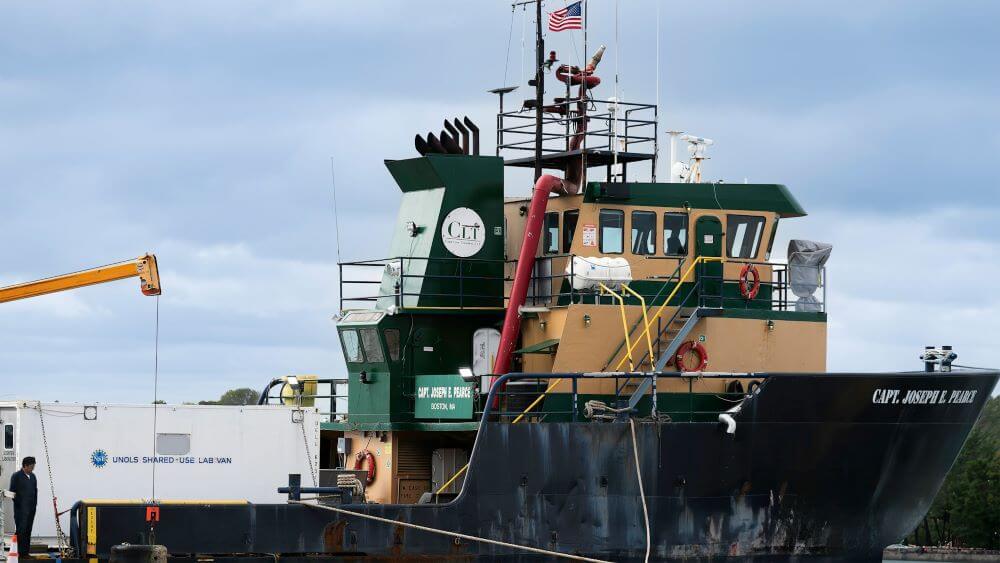The marine manufacturing industry is undergoing a profound change fueled by the integration of automation and advanced technologies allowing marine manufacturers to leverage automation to streamline operations, improve precision, and meet sustainability goals. From shipbuilding to component production, these innovations are reshaping traditional workflows, enabling higher efficiency and reducing costs. However, the journey toward automation is not without challenges, including financial hurdles and workforce reskilling workforces.
Despite these obstacles, the future of automation in the marine sector holds immense promise, with trends like autonomous shipbuilding and AI-driven design poised to revolutionize the industry. The impact of automation extends beyond manufacturers, influencing stakeholders like suppliers and workers. By fostering collaboration and adaptability, the marine industry can harness the full potential of automation to ensure a resilient, sustainable, and innovative future, as Lucas Shane Chittum describes.
The Role of Automation in Marine Manufacturing
Automation plays a pivotal role in transforming manufacturing processes across industries, including the marine sector. With its ability to streamline operations, reduce human error, and boost productivity, automation is reshaping how marine manufacturers address long-standing challenges. It provides solutions to issues such as labor shortages, rising production costs, and stringent environmental regulations that require innovative approaches to remain competitive.
In the marine industry, automation is not just about replacing manual tasks but about optimizing processes to achieve greater precision and efficiency. Shipbuilding, such as hull fabrication and assembly, benefits from robotic systems that improve accuracy while accelerating production timelines. As these technologies evolve, marine manufacturers are finding new ways to integrate automation into traditional workflows, paving the way for more sustainable and cost-effective operations.
Technologies Transforming Marine Industry Production
The marine manufacturing sector is undergoing a revolution driven by cutting-edge automation technologies. Robotics, widely adopted in tasks like welding and assembly, has enhanced precision and reduced production times. These systems can perform complex, repetitive tasks with unmatched consistency, making them indispensable in modern shipbuilding processes. Artificial intelligence is another transformative tool, analyzing vast amounts of data to enable predictive maintenance, reduce downtime, and optimize vessel designs tailored to specific operational needs.
Additive manufacturing, commonly referred to as 3D printing, is reshaping how components are produced in the marine industry. This technology enables the creation of lightweight, durable parts that can be manufactured on demand, reducing inventory costs and material waste while also allowing for greater customization. More innovative operations are also becoming possible with the Internet of Things (IoT), which connects equipment and systems to provide real-time monitoring and insights.
Advantages of Automation for Marine Manufacturers
Automation offers a multitude of benefits that have made it a cornerstone of marine manufacturing processes. By integrating automated systems, manufacturers can achieve higher productivity levels while maintaining exceptional quality standards. The precision offered by robotic systems minimizes errors, ensuring that designs are executed accurately, even in large-scale projects. Additionally, automation helps streamline workflows, allowing marine manufacturers to meet tight deadlines without compromising on quality.
Environmental compliance is another advantage. Automated processes reduce material waste and energy consumption, aligning with global sustainability goals. Over time, the cost savings from automation outweigh the initial cost, as manufacturers benefit from reduced labor expenses and improved operational efficiency. This balance of economic and environmental benefits has made automation a critical tool for the industry’s progression, especially as global competition intensifies.
Challenges and Considerations for Implementation
While automation offers advantages, its adoption in marine manufacturing comes with notable challenges. The high upfront costs of acquiring and integrating advanced technologies remain a barrier for many companies, particularly smaller manufacturers. These financial hurdles can delay implementation and limit access to the benefits of automation for businesses operating on tight margins.
Another critical concern is the need to reskill the workforce. As automated systems take over manual tasks, workers must adapt by acquiring new technical skills to manage, maintain, and optimize these technologies. This transition can be met with resistance or uncertainty, especially in regions where traditional shipbuilding has deep cultural and economic roots. Furthermore, integrating automation into existing workflows is often a complex process requiring careful planning to ensure compatibility with legacy systems without disrupting operations. The success of implementation hinges on balancing technological upgrades with the human factors involved.
Impact on Stakeholders in the Marine Sector
The rise of automation has significant implications for all stakeholders in the marine industry. Manufacturers are finding ways to improve efficiency and cut costs, but these advancements also require collaboration with technology providers to ensure seamless adoption. Suppliers, meanwhile, must adapt to new demands for components compatible with automated processes.
Workers are the group most directly affected by automation’s rise. While concerns about job displacement are valid, the shift also creates opportunities for upskilling and access to higher-paying, technology-focused roles. To navigate this transition smoothly, companies must invest in training programs and foster a culture of adaptability among their workforce. Moreover, governments and industry bodies can play a role by supporting initiatives that promote technical education.
The Future of Automation in Marine Manufacturing
The future of automation in the marine sector is filled with transformative potential. Trends such as autonomous shipbuilding and AI-powered design tools are expected to redefine how vessels are designed and constructed. These advancements promise to reduce lead times and improve customization, allowing manufacturers to meet the growing demand for specialized ships tailored to various applications.
Sustainability will undoubtedly shape the trajectory of automation in the industry. Automated systems are already helping reduce environmental impact by optimizing resource use and lowering emissions during production. As global regulations tighten on marine pollution and energy efficiency, automation will likely play a pivotal role in helping manufacturers align with these standards while remaining competitive. Emerging technologies like digital twins, which simulate and optimize ship designs before production, signal a future where innovation and sustainability coalesce.

